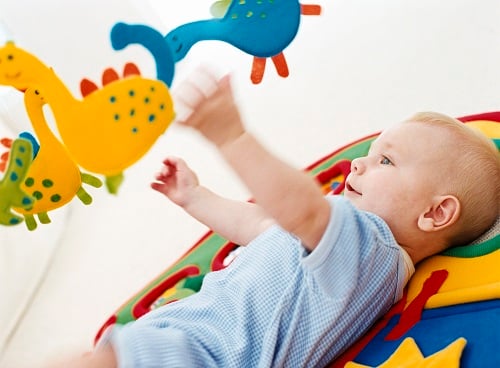Baby Dry Skin
Baby’s skin is so delicate and sensitive that, unfortunately, it is even more prone to becoming dry and irritated than adult skin – especially in the winter.
Symptoms of dry skin
It will be dry to touch, the baby will even experience peeling of flaking of skin in early stages. If your baby seems to be itchy, keep an eye on the areas they are scratching.
Early treatment is best, as dry skin can result in cracking of the epidermis which can be very painful and may lead to infection.
Causes of dry baby skin
Sometimes, babies are born with dry skin. This is most common in babies who are delivered after 40 weeks and it generally improves within days.
The main reason for our little ones getting dry skin is when they are spending in air that is either too dry, too cold, or overheated. These conditions take away valuable moisture from the skin. Salt water or chemicals like the chlorine used in pools can also be a culprit.
Another cause is too much bathing. As much as we love bathing our newborns, too much of it can remove important natural oils from the surface of the skin
How to treat baby skin dryness
As with most things, prevention is the best cure for dry skin. Avoid soap or, as your baby gets older, use a low-irritant cleanser. Stay away from powders and perfumes, and make sure laundry detergents aren’t exacerbating any sensitivities.
If dryness has already occurred, then simply try these steps:
• Skip baths every other day. Unless your little one has had a messy day, the chances are that a bath isn’t mandatory. Just give them a wipe in the key areas and leave the bath for tomorrow.
• Keep bath times short. Maximise your bath time by having play time before they are submerged in water and then drying them right away.
• Apply moisturiser after a bath. As soon as you have towel dried your baby cover them in a good quality, hypoallergenic, lotion.
• Make sure your baby has enough to drink. Hydration can be maintained with breast milk or formula, or with water for older babies and toddlers.
• Use a humidifier. Dry air, especially in your baby’s room, can be remedied by running a mist humidifier.
To learn more about baby skin conditions, take a look at our flaked skin or eczema sections. If your bub has red, itchy patches, or dry skin that doesn’t seem to improve, it’s best to see a doctor.
The information published herein is intended and strictly only for informational, educational, purposes and the same shall not be misconstrued as medical advice. If you are worried about your own health, or your child’s well being, seek immediate medical advice. You should never delay seeking medical advice, disregard medical advice, or discontinue medical treatment because of information on this website. Kimberly-Clark and/ or its subsidiaries assumes no liability for the interpretation and/or use of the information contained in this article. Further, while due care and caution has been taken to ensure that the content here is free from mistakes or omissions, Kimberly-Clark and/ or its subsidiaries makes no claims, promises or guarantees about the accuracy, completeness or adequacy of the information here, and to the extent permitted by law, Kimberly-Clark and/ or its subsidiaries do not accept any liability or responsibility for claims, errors or omissions.Last Published* April, 2023
*Please note that the published date may not be the same as the date that the content was created and that information above may have changed since.




